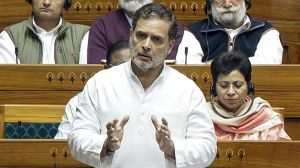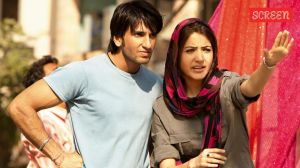Two political parties on the left in Bangladesh have strongly criticised proposals to remove secularism and socialism from the preamble of the country’s constitution, setting the stage for a debate on the foundational principles of its democracy.

The Constitution Reform Commission was appointed by the interim government led by Muhammad Yunus which took power after the collapse of the regime led by Prime Minister Sheikh Hasina in August 2024.
The report submitted to Chief Adviser Yunus has recommended that equality, human dignity, social justice, and pluralism should be included in the preamble, and nationalism, socialism, and secularism removed.
The Bangladesh Nationalist Party (BNP) of Khaleda Zia and the Bangladesh Jamaat-e-Islami, the most important political parties in the post-Hasina period, the centre-left Ganosamhati Andolan, and the civil society platform Jatiya Nagorik Committee are yet to make public pronouncements on the proposals.
The Awami League under Hasina has long been accused of using these constitutional principles for partisan political purposes. The Islamist Jamaat — which Hasina’s government dealt with harshly, and which is an important voice in Yunus’s government — has been especially resentful.
What does secularism mean in Bangladesh?
The debate over secularism goes back to the founding of the Bangladeshi nation.
Bangabandhu Sheikh Mujibur Rahman, Hasina’s father, who led the country’s freedom movement against Pakistan, envisaged a secular, liberal, democratic future for his country. There were, however, those who believed even at that time that the break with Pakistan was not desirable, and were opposed to what they believed amounted to the splintering of the Muslim ummah.
Story continues below this ad
In June 2024, when Hasina was still in power, The Daily Star, the leading daily newspaper in Bangladesh, published an article by Nafiz Ahmed, a professor of jurisprudence at Dhaka’s private North South University, which discussed the unusual nature of Bangladeshi secularism.
“One of the most unique features of the Bangladeshi Constitution is that it pledges to conserve secularism (Article 12) while also declaring Islam as its state religion (Article 2A),” Ahmed wrote.
He elaborated: “The promise of secularism was present in the original Constitution. The state religion was added later through an amendment. Secularism was removed from the Constitution but was later restored through another amendment. Currently, both secularism and state religion co-exist in the Bangladeshi Constitution.”
Is there an inherent dichotomy in this situation?
“If their meanings are taken literally, the existence of secularism and a constitutionally recognised state religion seem mutually exclusive, as there is an intrinsic conflict between the two,” Ahmed wrote.
Story continues below this ad
The question has been considered by Bangladesh’s top court. In 2016, the High Court Division of the Supreme Court of Bangladesh (the other division is called the Appellate Division) held that having a state religion “does not offend the concept of secularism, as provided for in the Constitution”.
It neither affects the basic structure of the Constitution nor violates the constitutionally guaranteed freedom of religion, the court held.
In his article, Ahmed, who analysed the judgment – the full text of which was made public only in 2024 – concluded that it had produced “a new understanding of secularism in Bangladesh and the consequences (or lack thereof) of recognising Islam as the state religion”.








































